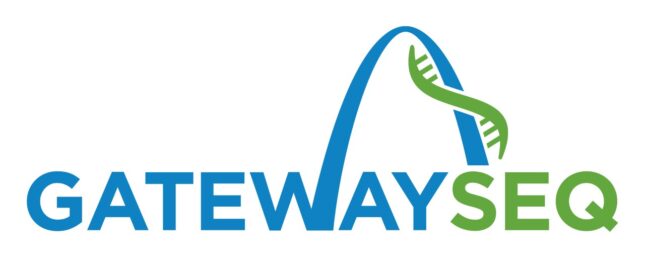GatewaySeq NGS Panel with Interpretation

| Test Details | GatewaySeq is a tumor-only, high coverage, targeted next-generation sequencing assay that provides a genomic assessment of solid tumors at initial diagnosis, recurrence, or metastasis. GatewaySeq serves to identify the most common clinically significant and targetable gene mutations, copy number alterations, structural variants, as well as microsatellite instability (MSI) and tumor mutational burden (TMB). GatewaySeq is not intended for use in patients without morphologically apparent disease, to determine site of origin in cancer of unknown primary, or to monitor disease in cell-free DNA. |
| Relevant Conditions | GatewaySeq can be applied to, but is not limited to, cancers of the breast, gastrointestinal tract, head and neck, lung, skin, thyroid, genitourinary tract, gynecologic tract, hepatobiliary tract, bone and soft tissue, brain, and for lymphomas. |
| Target(s) | Gene mutations (single nucleotide variants and indels in exonic regions) for 133 genes: AR, ARAF, AKT1, ALK, APC, ARID1A, ATM, ATRX, B2M, BAP1, BARD1, BCL10, BCL2, BRIP1, BRAF, BRCA1, BRCA2, BTK, CCND1, CARD11, CD79B, CDH1, CCND3, CCNE1, CDK12, CDK4, CDKN2A, CDKN2B, CHEK1, CHEK2, CIC, CREBBP, DICER1, CTNNB1, CXCR4, DNMT3A, EGFR, EIF1AX, EP300, ERBB2, EZH2, ESR1, ETV6, FANCA, FANCL, FGFR1, FGFR2, FGFR3, FOXO1, FUBP1, GNA11, H3F3A, GNA13, GNAQ, HIST1H1E, HIST1H3B, HIST1H3C, HRAS, ID3, IDH1, IDH2, ITPKB, KIT, KLF2, KMT2D, KRAS, MAP2K1, MLH1, MDM2, MEF2B, MET (includes MET exon 14 skipping variants), MYC, MSH2, MSH6, MYCN, NFKBIE, MYD88, NF1, NF2, NTRK1, NTRK2, NTRK3, NOTCH1, NOTCH2, NRAS, PAX8, PALB2, PIK3CA, PDGFRA, PMS2, POLD1, POLE, PIM1, PLCG2, PTCH1, PTEN, PTPRD, RAD51B, RAD51C, RAD51D, RAF1, RB1, RRAGC, RET, RHOA, ROS1, SDHC, SDHD, RSPO3, SDHA, SDHB, SMAD4, SMARCA4, SF3B1, SGK1, SMARCB1, STK11, STAT3, STAT5B, STAT6, TERT (includes TERT promoter variants), TCF3, TP53, TET2, TFE3, TFEB, TNFAIP3, TNFRSF14, TRAF7, TSC1, TSC2, VHL, XPO1 Copy number alterations: CCND1, CCNE1, CDKN2A/B, EGFR, KRAS, MDM2, MET, MYC, PDGFRA, PTEN, TP53 Structural variants (gene fusions and large deletions): ALK, CD74, EGFR, ETV6, FGFR2, NTRK1, RET, ROS1 Microsatellite instability Tumor mutational burden |
| Methodology | Next-generation sequencing using unique molecular identifiers (UMIs) |
| Turnaround Time | Approximately 10 business days |
| Specimen Requirements | Tissue, formalin-fixed, paraffin-embedded (FFPE) or alcohol-fixed formalin embedded tissue from cell blocks. FNA Smears. Unstained slides that are unbaked. Minimum tumor cellularity: 5% |
| Specimen Collection | To be ordered on previously collected surgical and cytological specimens (pathology report required). |
| Minimum Specimen Volume | Ten unstained unbaked slides cut at 10 μm thickness |
| Storage/Transport Conditions | Ship at room temperature |
| Unacceptable Conditions | Fresh tissue, peripheral blood, bone marrow aspirate, incorrect specimen container, or unlabeled specimen. |
| CPT Code(s) | 81479, G0452 (Professional interpretation), 88381 (Microdissection) |
| For Internal Providers Only | Algorithm testing is available for: -Lung carcinoma -Metastatic breast cancer -Anaplastic and poorly differentiated thyroid carcinoma |